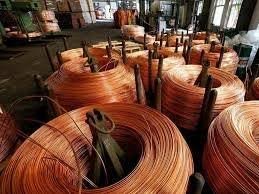#RioTinto #CopperMine #NativeAmericanRights #RenewableEnergy #USCircuitCourt #EnvironmentalImpact #ApacheStronghold #USCopperDemand
In a contentious decision on Friday, the U.S. federal government was granted the authority by an appeals court to proceed with a land transfer deal, enabling mining giant Rio Tinto Plc to establish a copper mine on a swath of land in Arizona, known as Oak Flat. This decision has drawn intense criticism from Native American groups who hold the land sacred, marking yet another episode in the protracted battle over the future of Oak Flat.
Oak Flat, a federally owned parcel of land in eastern Arizona, is not only rich in more than 40 billion pounds of copper—a key component in electric vehicle technology—but is also a site of profound religious and cultural significance to some Apache groups. They regard it as the abode of deities, a piece of their spiritual heritage that is now endangered by the prospect of mining activities. The development of the mine would lead to the creation of a massive crater, effectively annihilating this sacred site.
The heart of this controversy dates back to 2014 when the U.S. Congress and then-President Barack Obama sanctioned a complex deal that effectively paved the way for Rio Tinto to acquire the land for its Resolution Copper project. Despite successive appeals and lawsuits aimed at overturning the decision, including efforts by the nonprofit Apache Stronghold to protect the land, the legislation has remained intact. The latest ruling by the San Francisco-based 9th U.S. Circuit Court of Appeals, decided by a tight 6-5 vote, underscores the judiciary’s deference to this earlier congressional decision, adding another chapter to Rio Tinto’s 26-year effort to initiate the Resolution copper project.
The implications of the court’s decision are far-reaching. On one hand, the Resolution project promises to satisfy over a quarter of U.S. copper demand, a critical resource for the renewable energy sector. On the other hand, it raises acute questions about the balance between industrial development and the protection of cultural and environmental resources.
The legal saga has seen various administrations adopting differing stances. Under President Donald Trump, an environmental report required for the land swap to proceed was published, only for President Joe Biden to retract the report shortly after taking office, signaling a review of the Apache’s concerns. However, a permanent block on the mine has eluded Biden’s administration.
As the project edges closer to fruition, Rio Tinto has expressed its intention to continue dialogue with the tribal communities affected, aiming to address and mitigate their concerns. Meanwhile, the decision’s opponents, including Luke Goodrich from Becket Law representing Apache Stronghold, vow to escalate the matter to the U.S. Supreme Court, highlighting the enduring resistance among Native American communities.
This saga not only embodies the conflict between development interests and indigenous rights but also poses vital questions about the stewardship of natural resources in an era poised on the brink of a green energy revolution. The tension between fostering renewable energy sources and safeguarding cultural heritage sites underscores a complex environmental and ethical landscape that the U.S. must navigate as it moves towards a sustainable future. The debate over Oak Flat, at its core, encapsulates this struggle, setting a precedent for similar conflicts poised to emerge as demands for critical minerals collide with the imperative to protect indigenous lands and cultures.


Comments are closed.